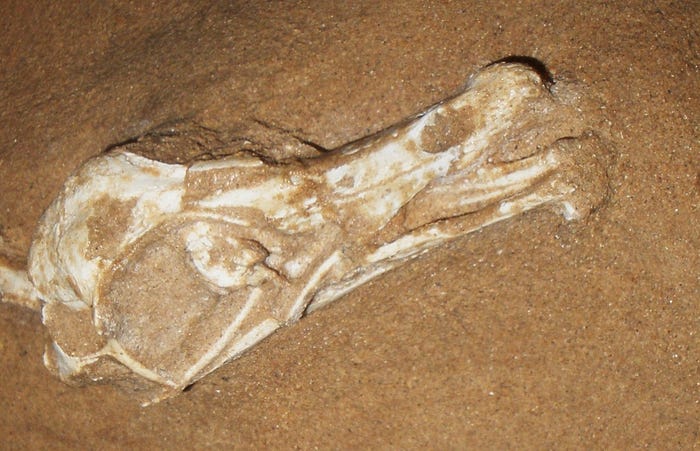Unveiling a New Duck-Like Dinosaur: A Deep Dive into Its Discovery
Written on
Chapter 1: A Remarkable Discovery
Recent findings in Mongolia have unveiled a previously unknown dinosaur species. This dinosaur, resembling a duck, exhibited the remarkable ability to hunt in a manner akin to modern penguins.
Analysis of the fossils indicates that this non-avian dinosaur was an adept swimmer, capable of diving to catch its prey. The evolutionary narrative surrounding dinosaurs and their ancient counterparts remains rife with enigmas. Fossil evidence and DNA research have established that birds are contemporary descendants of theropod dinosaurs that were feathered.
Section 1.1: The Duck-like Dinosaur
Dating back 71 million years to the Late Cretaceous period, this newly identified dinosaur showcased features reminiscent of a duck and was proficient in diving. Interestingly, while it has been noted that some birds possess adaptations for swimming, definitive proof of non-avian dinosaurs sharing this trait had yet to be discovered.
Scientists from Seoul National University in South Korea have conducted an in-depth analysis of these fossils, revealing that this species was capable of floating and diving for sustenance. The findings were published in the journal Communications Biology, marking a significant contribution to paleontology.
Subsection 1.1.1: Unique Features of the Fossil

Paleontologists have identified this as the first non-avian theropod with a streamlined body suited for diving. Notably, the fossil remains, initially discovered in 2008 in Mongolia's Gobi Desert, were underestimated at the time. A recent reevaluation by Korean scientists revealed the specimen's extraordinary characteristics.
"The skeleton, although fragile, was remarkably preserved. Upon further investigation, we recognized its uniqueness," stated Yuong-Nam Lee, the lead paleontologist.
Section 1.2: Naming the Dinosaur
The newly classified species has been designated as Natovenator polydontus, translating to "multi-toothed, swimming hunter." This dinosaur possessed over 100 small, sharp teeth and exhibited a body structure akin to aquatic birds, with a long neck and streamlined shape, facilitating efficient underwater movement.
"Regrettably, the thoracic region of N. polydontus was not well preserved. However, the configuration and shape of the ribs suggest that this dinosaur might have hunted similarly to contemporary penguins," Prof. Lee explained. Researchers believe that fish constituted the primary diet of this predator.
Chapter 2: Connections to Other Species
The first video, "Here's What 99% of Scientists Get WRONG About Dinosaurs," explores common misconceptions about these ancient creatures, providing insight into the evolving understanding of their biology and behavior.
However, the scientific community has indicated that additional research is necessary to substantiate the claims made by the Korean scientists. Some experts suggest examining the bone density of N. polydontus, which is crucial for understanding the characteristics of diving species that also inhabit terrestrial environments.
"In our view, the discovery of N. polydontus highlights the diversity of Cretaceous ecosystems, potentially explaining the significant variations seen in modern birds," Prof. Lee emphasized. Ongoing studies are planned to investigate the dietary habits of this diving dinosaur further.
Interestingly, researchers noted a potential link between this species and Halszkaraptor, a carnivorous dinosaur named after the Polish paleontologist Halszka Osmólska. Though Halszkaraptor exhibited features similar to a modern swan, no evidence has been found indicating its ability to dive or swim.
The second video, "Scientists discover what is believed to be new species of dinosaur," delves into the methodologies and implications of discovering new dinosaur species, enhancing our understanding of their ecological roles.
Source: Communications Biology
Did you enjoy this article? If so, feel free to leave a comment, some claps, or even a tip to support my work. Your encouragement motivates me to continue writing engaging content. Follow me for daily articles! Thank you!